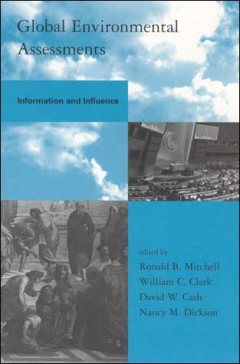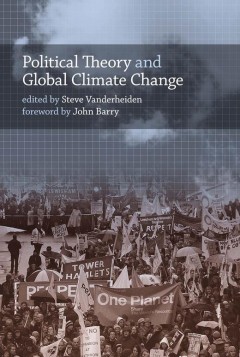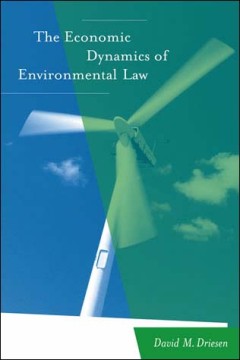Filter by

Global environmental assessments : information and influence
A comparative analysis of global environmental assessments shows the importance of policy salience, scientific credibility, and social and political legitimacy in determining the influence of scientific assessments on global environmental policy.OCLC-licensed vendor bibliographic record.
- Edition
- -
- ISBN/ISSN
- 9780262279987
- Collation
- 1 online resource (xiv, 344 pages) : illustrations.
- Series Title
- -
- Call Number
- 333 MIT g

Global environmental diplomacy : negotiating environment agreements for the W…
Tolba had as much insight into, and influence on, the development of international environmental policy as anyone. In this book, he tells the story of the negotiations that led to a number of landmark agreements, such as the Vienna Convention on Ozone and its Montreal Protocol, the Basel Convention on Hazardous Wastes, and the Biodiversity Convention. The book stands as the legacy of an importa…
- Edition
- -
- ISBN/ISSN
- 9780262285056
- Collation
- 1 online resource (xii, 212 pages).
- Series Title
- Global Environmental Accord: Strategies for Sustainability and Institutional Innovation
- Call Number
- 333 TOL g

Political Theory and Global Climate Change
Political theorists consider the challenge of global climate change from a range of perspectives, including conceptual analysis, critical theory, critical legal studies, and neo-Marxism.OCLC-licensed vendor bibliographic record.
- Edition
- -
- ISBN/ISSN
- 9780262285445
- Collation
- 1 online resource (xxiv, 228 pages)
- Series Title
- -
- Call Number
- -

Environmental Justice and Sustainability in the Former Soviet Union
This is an examination of the awareness of environmental and social justice issues in the former Soviet republics - from the Western-style democracies of the Baltic region to the totalitarian regimes of Central Asia - and the resulting activism in those states.OCLC-licensed vendor bibliographic record.
- Edition
- -
- ISBN/ISSN
- 9780262255493
- Collation
- 1 online resource (vi, 296 pages) :illustrations.
- Series Title
- -
- Call Number
- -

Managers of Global Change: The Influence of International Environmental Burea…
This title is an examination of the role and relevance of international bureaucracies in global environmental governance. After a discussion of theoretical context, reaserch design, and empiral methodology, the book presents nine in-depth case studies of bureaucracies.OCLC-licensed vendor bibliographic record.
- Edition
- -
- ISBN/ISSN
- 9780262258593
- Collation
- 1 online resource (xiv, 367 pages)
- Series Title
- -
- Call Number
- -

Institutions and Environmental Change: Principal Findings, Applications, and …
"Institutional Dimensions of Global Environmental Change, a core research project of the International Human Dimensions Programme on Global Environmental Change (IHDP)."This overview of recent research on how institutions matter in tackling environmental problems reports the findings and policy implications of a decade-long international research project.OCLC-licensed vendor bibliographic record.
- Edition
- -
- ISBN/ISSN
- 9780262286589
- Collation
- 1 online resource (xxii, 373 pages) :illustrations
- Series Title
- -
- Call Number
- -

Technoscience and environmental justice: Expert cultures in a grassroots move…
This book argues that the environmental justice movement has also begun to transform science and engineering. The chapters present case studies of technical experts' encounters with environmental justice and activists and issues.OCLC-licensed vendor bibliographic record.
- Edition
- -
- ISBN/ISSN
- 9780262298407
- Collation
- 1 online resource (viii, 298 pages) :illustrations, maps.
- Series Title
- -
- Call Number
- -

Living in denial: Climate change, emotions, and everyday life
Global warming is the most significant environmental issue of our time, yet public response in Western nations has been meager. Why have so few taken any action? In this book sociologist Kari Norgaard searches for answers to this question.OCLC-licensed vendor bibliographic record.
- Edition
- -
- ISBN/ISSN
- 9780262295772
- Collation
- 1 online resource (xix, 279 pages) :illustrations
- Series Title
- -
- Call Number
- -

Domestic Sources of International Environmental Policy: Industry, Environment…
How do international environmental standards come into being? One important way, as Elizabeth DeSombre shows in this book, is through the internationalization of regulations that one or more countries have undertaken domestically. Domestic environmental regulation, DeSombre argues, can create an incentive for environmentalists and industry--previously at odds with each other--to work together t…
- Edition
- -
- ISBN/ISSN
- 9780262271608
- Collation
- 1 online resource (xiv, 300 pages).
- Series Title
- -
- Call Number
- -

The economic dynamics of environmental law
This text shows in detail how the concept of economic dynamics can reshape thinking about environmental law and policy. It argues that environmental policymaking in the US has been poorly served by the view of the relationship between environmental regulation and economy, technology and business.OCLC-licensed vendor bibliographic record.
- Edition
- -
- ISBN/ISSN
- 9780262272001
- Collation
- 1 online resource (viii, 268 pages)
- Series Title
- -
- Call Number
- -
 Computer Science, Information & General Works
Computer Science, Information & General Works  Philosophy & Psychology
Philosophy & Psychology  Religion
Religion  Social Sciences
Social Sciences  Language
Language  Pure Science
Pure Science  Applied Sciences
Applied Sciences  Art & Recreation
Art & Recreation  Literature
Literature  History & Geography
History & Geography